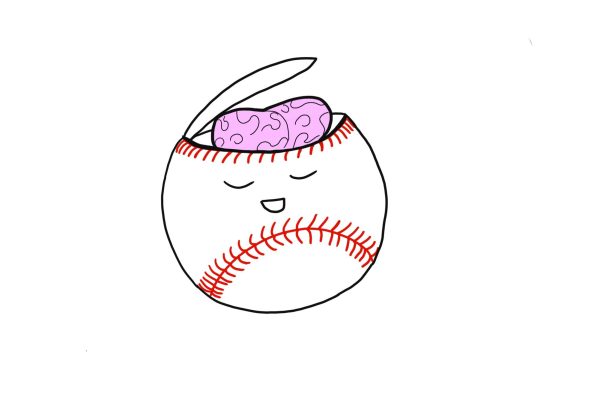
I often hear sports fans and casuals lament the “boring nature” of baseball. They’ll even go so far as to say that it deserves its perceived lengthy decline into cultural irrelevancy, citing lethargic gameplay as an explanation for dips in attendance and television ratings.
Forgive me for taking offense, but it disturbs me to hear the sport besmirched like that.
Yes, baseball is no longer the zenith of American sports like it was before the sixties. The NFL and the NBA deserve their flowers for concerted efforts to wedge themselves in front of public consciousness since the dawn of television.
In a way, it was easier for these leagues due to the innate marketability of their respective sports. Football and basketball are subjectively more fast-paced and electrifying to the masses. Baseball, with its general lack of timing and prolonged breaks between action, may feel like a slog to the same viewers.
Still, baseball will always be the “national pastime” in my eyes, and no one can convince me otherwise. The sport rewards patience unlike any other practice. It’s stoic to a fault, but you don’t have to be a philosopher to enjoy a game. Additionally, baseball’s mythos is unparalleled amongst sport, its mystique more akin to the Roman Catholic Church. Saints, sinners and martyrs have all graced the diamond at some point in time.
Stoicism manifests in the minutiae of the game. Hellenistic philosophers extolled the importance of virtue, set values that maximize the good in one’s life. One of such virtues is patience, the general belief that delaying gratification to appreciate the payoff down the road. Ancient Stoics also believed that tranquility could be found in the so-called “little things.” Those that are considered insignificant add up to wholly benefit the person who appreciates them.
The average MLB game lasts just under three hours. Although this is shorter than the average NFL game, it can be argued that it feels like much more of a slog due to frequent breaks in action — pitching changes, booth reviews and frame changes all add up. In many cases, an at-bat can take multiple minutes. Even more frequently will those at-bats result in outcomes that are well short of eye-popping, like a groundout or a single.
One may ask themselves why they must sit through hours of monotony for such a small payout — a homerun or two? Those who have no faith miss the beauty of the game.
Baseball is a sport that relishes the little things. Early baseball lineups were originally built around “small ball.” Watching the sport while expecting fireworks every time is just not sustainable. This isn’t to say that baseball fans must become accustomed to a lesser quality of entertainment to truly enjoy the game. Rather, they must realize that there are merits to these lulls in firepower. We mustn’t be greedy, as there are grand moments on the field, wherever the eye looks. Focus on the graceful windup of the pitcher, the diving body of the outfielder and the sun setting behind the foul pole. Let yourself become enraptured by the fluid swings of the batter, and the wave in the crowd that is making its way towards you.
Like any other tradition, baseball has its own creation myth. Abner Doubleday is just one of the sport’s countless icons, deserved or not. These figures, steeped in mystique and treated as holy, only add to the charm of baseball. I grew up reading about the exploits of Joe Jackson, Babe Ruth, Jackie Robinson and Ted Williams. My father, always a sports buff, would tell me anecdotes about more contemporary athletes such as Willie Stargell, Reggie Jackson, Pete Rose and Ricky Henderson. When I watch a game, I am reminded of those who came before — it feels bigger than a game. It’s certainly bigger than me.
Some of my fondest memories in life involve attending baseball games with my father. While this is undoubtedly an American cliché that has been trotted out by seemingly every GOP strategist, the two of us were inseparable thanks to our shared interest in the game.
From when I was still in diapers, he would haul me — and oftentimes my sister — to high school, college and minor league baseball games. It was there that I learned up close the ephemeral sensations of the sport. You see, these games were far from the standard of play one would expect at a Major League level. There is something so rewarding about lower-level baseball games. In many cases, players are competing without a salary; they have nothing material to gain. Yet, they play for the love of the game, and that is beautiful.
On hazy late-spring nights, I’ll walk from my dorm to Greer Field at Turchin Stadium for a Tulane Baseball game. I’ll use my splash card to gain free entry to the ballpark. I’ll buy a cheap hot dog and a drink and I’ll perch myself in the most distant part of the bleachers. It is there that I truly understand what makes the sport so great.



